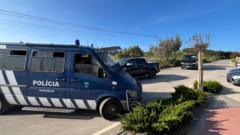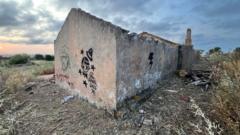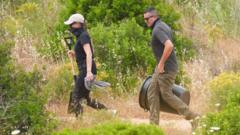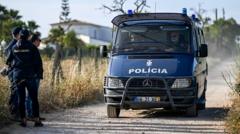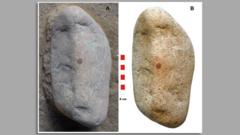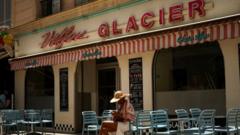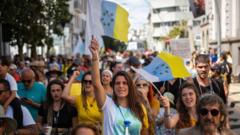As millions experienced an unprecedented power outage, residents of Spain and Portugal highlighted five essential items that proved crucial in navigating daily life during the blackout, including cash, radios, non-perishable food, candles, and power banks.
Essential Survival Tips During the Recent Power Outage in Spain and Portugal
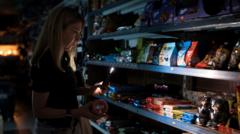
Essential Survival Tips During the Recent Power Outage in Spain and Portugal
A recent historic power blackout in Spain and Portugal left millions without electricity, prompting residents to share essential items that helped them cope.
The recent electricity blackout that struck Spain and Portugal was described by many as the worst in the countries’ histories, leaving millions to find ways to adapt to an unexpected day without power. In this extraordinary situation, people reflected on the essentials that sustained them through the outage.
**Cash** emerged as a king once again, as transactions swiftly shifted back to physical money. With card systems down, many found themselves reliant on cash to secure necessities. "We were lucky to scrape together enough change for essentials, but many were left stranded for lack of cash," noted a Madrid resident, Ed Rowe. The return to cash highlighted the vulnerabilities of an increasingly cashless society during emergencies. The message was clear: in times of crisis, having cash on hand is vital.
Another crucial element was **communication**, significantly hindered by the loss of power. Without internet and phone services, many felt isolated and uncertain. Some, like Daniel Clegg from Barcelona, resorted to observing their surroundings for signs of normalcy, such as aircraft in the sky. For others, including the Buschschlüters, a traditional wind-up radio became a lifeline. This device allowed them to tune into local news updates and maintain a semblance of connection to the outside world, emphasizing the importance of alternative communication tools during technology failures.
As people searched for **non-perishable food** items that didn’t require electricity to prep or cook, they came to realize the limitations of modern conveniences. Panic-buying reminiscent of the Covid-19 pandemic overtook supermarkets, revealing a critical need for ready-to-eat essentials. Respondents admitted wishing they had made better preparations for such events, with ideas for small camping stoves added to many shopping lists after the fact.
The use of **candles and torches** became prevalent as night fell across the blackout regions. Many residents, like Richard from Alcalá de Henares, navigated in pitch darkness aided only by candlelight. Creative uses for candles sprung forth—such as Sarah Baxter utilizing candle heat to prepare food—though cautions about fire hazards were noted.
Finally, the reliance on **power banks** became evident as people sought ways to charge their devices. While some faced empty batteries, others had foresight with solar chargers, allowing them to maintain connection during the lengthy blackout. This situation led some individuals to appreciate the simplicity of life without constant connectivity, prompting reflections on modern dependency on technology.
Each of these essentials highlights resilience and adaptability, as communities faced unprecedented challenges together, underlining the importance of preparedness for unforeseen circumstances within modern societies.







